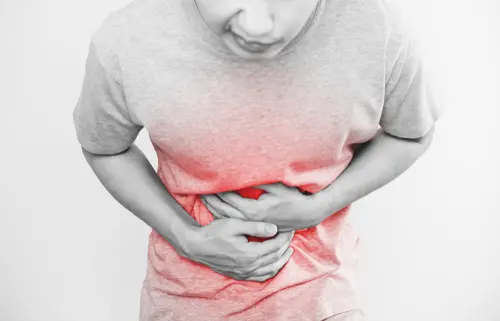- Home
- Medical news & Guidelines
- Anesthesiology
- Cardiology and CTVS
- Critical Care
- Dentistry
- Dermatology
- Diabetes and Endocrinology
- ENT
- Gastroenterology
- Medicine
- Nephrology
- Neurology
- Obstretics-Gynaecology
- Oncology
- Ophthalmology
- Orthopaedics
- Pediatrics-Neonatology
- Psychiatry
- Pulmonology
- Radiology
- Surgery
- Urology
- Laboratory Medicine
- Diet
- Nursing
- Paramedical
- Physiotherapy
- Health news
- Fact Check
- Bone Health Fact Check
- Brain Health Fact Check
- Cancer Related Fact Check
- Child Care Fact Check
- Dental and oral health fact check
- Diabetes and metabolic health fact check
- Diet and Nutrition Fact Check
- Eye and ENT Care Fact Check
- Fitness fact check
- Gut health fact check
- Heart health fact check
- Kidney health fact check
- Medical education fact check
- Men's health fact check
- Respiratory fact check
- Skin and hair care fact check
- Vaccine and Immunization fact check
- Women's health fact check
- AYUSH
- State News
- Andaman and Nicobar Islands
- Andhra Pradesh
- Arunachal Pradesh
- Assam
- Bihar
- Chandigarh
- Chattisgarh
- Dadra and Nagar Haveli
- Daman and Diu
- Delhi
- Goa
- Gujarat
- Haryana
- Himachal Pradesh
- Jammu & Kashmir
- Jharkhand
- Karnataka
- Kerala
- Ladakh
- Lakshadweep
- Madhya Pradesh
- Maharashtra
- Manipur
- Meghalaya
- Mizoram
- Nagaland
- Odisha
- Puducherry
- Punjab
- Rajasthan
- Sikkim
- Tamil Nadu
- Telangana
- Tripura
- Uttar Pradesh
- Uttrakhand
- West Bengal
- Medical Education
- Industry
Laxatives Lower Risk of Hyperkalemia in Advanced Chronic Kidney Disease

Constipation is one of the most common gastrointestinal disorders among patients with chronic kidney disease (CKD) partly because of their sedentary lifestyle, low fibre and fluid intake, concomitant medications (e.g., phosphate binders), and multiple comorbidities (e.g., diabetes). In a recent study, researchers have reported that laxatives significantly reduces the risk of hyperkalemia in advanced CKD. They also recommend administering laxatives with careful consideration for the risk-benefit profiles. The research has been published in the Journal of the American Society of Nephrology on March 31, 2021.
Intestinal potassium excretion is increased in patients with advanced CKD. They also often experience constipation partly due to a low-fibre diet to prevent hyperkalemia. It is possible that this compensatory mechanism is enhanced by laxative use, but little is known about the association of laxative use with the risk of dyskalemias in advanced CKD. Therefore, Dr Keiichi Sumida and his team conducted a study to examine the laxative use and risk of dyskalemia in patients with advanced CKD transitioning to dialysis.
The researchers included a total of 36,116 United States mostly male veterans with advanced CKD. Using generalized estimating equations with adjustment for potential confounders, they examined the association of time-varying laxative use with risk of dyskalemia (i.e., hypokalemia [potassium <3.5 mEq/L] or hyperkalemia [>5.5 mEq/L]) versus normokalemia (3.5–5.5 mEq/L) over the 1-year pre-ESKD period. Among 36,116 veterans, they noted 15,842 (5.0%) had hyperkalemia and 12,787 (4.0%) had hypokalemia in the year prior to end-stage kidney disease (ESKD).
Key findings of the study were:
- Over the last 1-year pre-ESKD period, the researchers identified 319,219 repeated potassium measurements in the cohort.
- Among 319,219 readings, they noted hypokalemia in 4.0% and hyperkalemia in 5.0% with the time-averaged potassium measurement of 4.5 mEq/L.
- Upon multivariable adjustment, they found that time-varying laxative use was significantly associated with 21% lower adjusted odds of hyperkalemia (serum potassium greater than 5.5 mEq/L) compared with nonuse.
- However, they found no relationship between laxative use and hypokalemia (serum potassium less than 3.5 mEq/L).
- They further noted that the results were consistent with several sensitivity analyses.
The authors concluded, " Laxative use was independently associated with lower risk of hyperkalemia during the last 1-year pre-ESKD period. Our findings support a putative role of constipation in potassium disarrays and also support (with a careful consideration for the risk-benefit profiles) the therapeutic potential of laxatives in hyperkalemia management in advanced CKD."
For further information:
Dr Kartikeya Kohli is an Internal Medicine Consultant at Sitaram Bhartia Hospital in Delhi with super speciality training in Nephrology. He has worked with various eminent hospitals like Indraprastha Apollo Hospital, Sir Gangaram Hospital. He holds an MBBS from Kasturba Medical College Manipal, DNB Internal Medicine, Post Graduate Diploma in Clinical Research and Business Development, Fellow DNB Nephrology, MRCP and ECFMG Certification. He has been closely associated with India Medical Association South Delhi Branch and Delhi Medical Association and has been organising continuing medical education programs on their behalf from time to time. Further he has been contributing medical articles for their newsletters as well. He is also associated with electronic media and TV for conduction and presentation of health programs. He has been associated with Medical Dialogues for last 3 years and contributing articles on regular basis.
Dr Kamal Kant Kohli-MBBS, DTCD- a chest specialist with more than 30 years of practice and a flair for writing clinical articles, Dr Kamal Kant Kohli joined Medical Dialogues as a Chief Editor of Medical News. Besides writing articles, as an editor, he proofreads and verifies all the medical content published on Medical Dialogues including those coming from journals, studies,medical conferences,guidelines etc. Email: drkohli@medicaldialogues.in. Contact no. 011-43720751


